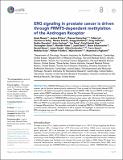| dc.contributor.author | Mounir, Zineb | en_US |
| dc.contributor.author | Korn, Joshua M | en_US |
| dc.contributor.author | Westerling, Thomas | en_US |
| dc.contributor.author | Lin, Fallon | en_US |
| dc.contributor.author | Kirby, Christina A | en_US |
| dc.contributor.author | Schirle, Markus | en_US |
| dc.contributor.author | McAllister, Gregg | en_US |
| dc.contributor.author | Hoffman, Greg | en_US |
| dc.contributor.author | Ramadan, Nadire | en_US |
| dc.contributor.author | Hartung, Anke | en_US |
| dc.contributor.author | Feng, Yan | en_US |
| dc.contributor.author | Kipp, David Randal | en_US |
| dc.contributor.author | Quinn, Christopher | en_US |
| dc.contributor.author | Fodor, Michelle | en_US |
| dc.contributor.author | Baird, Jason | en_US |
| dc.contributor.author | Schoumacher, Marie | en_US |
| dc.contributor.author | Meyer, Ronald | en_US |
| dc.contributor.author | Deeds, James | en_US |
| dc.contributor.author | Buchwalter, Gilles | en_US |
| dc.contributor.author | Stams, Travis | en_US |
| dc.contributor.author | Keen, Nicholas | en_US |
| dc.contributor.author | Sellers, William R | en_US |
| dc.contributor.author | Brown, Myles | en_US |
| dc.contributor.author | Pagliarini, Raymond A | en_US |
| dc.date.accessioned | 2016-07-14T19:14:06Z | |
| dc.date.issued | 2016 | en_US |
| dc.identifier.citation | Mounir, Z., J. M. Korn, T. Westerling, F. Lin, C. A. Kirby, M. Schirle, G. McAllister, et al. 2016. “ERG signaling in prostate cancer is driven through PRMT5-dependent methylation of the Androgen Receptor.” eLife 5 (1): e13964. doi:10.7554/eLife.13964. http://dx.doi.org/10.7554/eLife.13964. | en |
| dc.identifier.issn | 2050-084X | en |
| dc.identifier.uri | http://nrs.harvard.edu/urn-3:HUL.InstRepos:27662111 | |
| dc.description.abstract | The TMPRSS2:ERG gene fusion is common in androgen receptor (AR) positive prostate cancers, yet its function remains poorly understood. From a screen for functionally relevant ERG interactors, we identify the arginine methyltransferase PRMT5. ERG recruits PRMT5 to AR-target genes, where PRMT5 methylates AR on arginine 761. This attenuates AR recruitment and transcription of genes expressed in differentiated prostate epithelium. The AR-inhibitory function of PRMT5 is restricted to TMPRSS2:ERG-positive prostate cancer cells. Mutation of this methylation site on AR results in a transcriptionally hyperactive AR, suggesting that the proliferative effects of ERG and PRMT5 are mediated through attenuating AR’s ability to induce genes normally involved in lineage differentiation. This provides a rationale for targeting PRMT5 in TMPRSS2:ERG positive prostate cancers. Moreover, methylation of AR at arginine 761 highlights a mechanism for how the ERG oncogene may coax AR towards inducing proliferation versus differentiation. DOI: http://dx.doi.org/10.7554/eLife.13964.001 | en |
| dc.language.iso | en_US | en |
| dc.publisher | eLife Sciences Publications, Ltd | en |
| dc.relation.isversionof | doi:10.7554/eLife.13964 | en |
| dc.relation.hasversion | http://www.ncbi.nlm.nih.gov/pmc/articles/PMC4909395/pdf/ | en |
| dash.license | LAA | en_US |
| dc.subject | Short Report | en |
| dc.subject | TMPRSS2:ERG | en |
| dc.subject | PRMT5 | en |
| dc.subject | androgen receptor | en |
| dc.subject | prostate cancer | en |
| dc.subject | Human | en |
| dc.title | ERG signaling in prostate cancer is driven through PRMT5-dependent methylation of the Androgen Receptor | en |
| dc.type | Journal Article | en_US |
| dc.description.version | Version of Record | en |
| dc.relation.journal | eLife | en |
| dash.depositing.author | Brown, Myles | en_US |
| dc.date.available | 2016-07-14T19:14:06Z | |
| dc.identifier.doi | 10.7554/eLife.13964 | * |
| dash.authorsordered | false | |
| dash.contributor.affiliated | Brown, Myles | |


